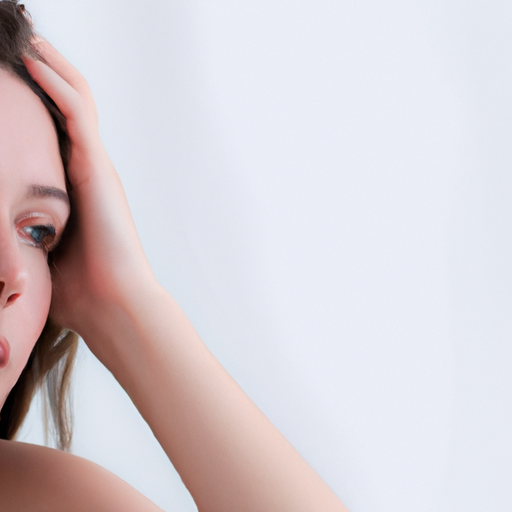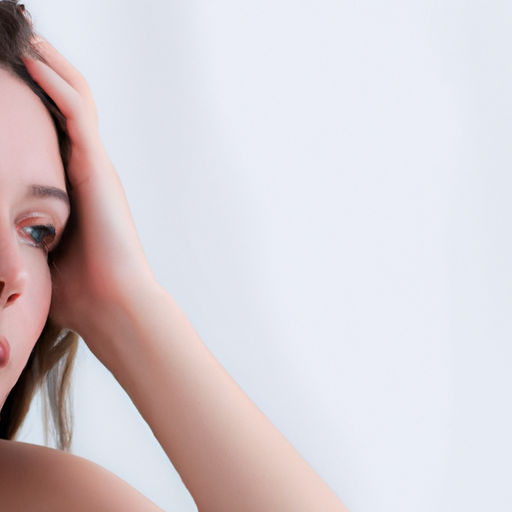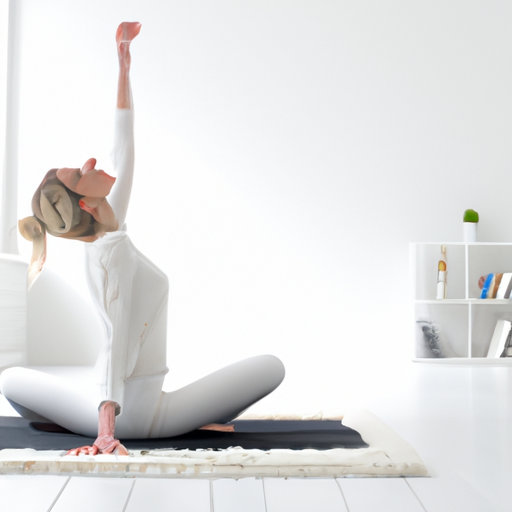Do you ever find yourself feeling anxious or stressed out? It’s a completely normal feeling, but it can be overwhelming at times. While there are various ways to manage anxiety, have you ever considered natural anxiety meds? In this article, we’ll dive into the world of natural remedies for anxiety and explore different options that could potentially help you find some relief. So, keep reading to discover how these natural anxiety meds can make a difference in your life.
When it comes to dealing with anxiety, it can sometimes be challenging to find the right solution. Many people turn to prescription medications, but they often come with unwanted side effects. That’s where natural anxiety meds come into play. These remedies are derived from natural ingredients and have been used for centuries to promote relaxation and reduce anxiety. From herbal supplements like valerian root and passionflower to mindfulness techniques like meditation and deep breathing exercises, there are plenty of natural approaches to consider. So, if you’re looking for a more holistic approach to managing your anxiety, stay tuned to learn more about these natural anxiety meds and how they can help you find peace and calmness in your life.
Understanding Anxiety
Anxiety is a common mental health condition that affects millions of people worldwide. It is characterized by feelings of worry, fear, and unease. While it is normal to experience occasional anxiety, for some individuals, anxiety becomes chronic and debilitating. Understanding the different types of anxiety disorders and available treatment options is crucial for managing this condition effectively.
What is anxiety?
Anxiety is a natural response to stress and danger. It helps us stay alert and focused in times of potential threat. However, when anxiety becomes excessive and persistent, it can interfere with daily life and cause significant distress.
Common symptoms of anxiety include:
- Feeling restless or on edge
- Excessive worrying
- Difficulty concentrating
- Irritability
- Sleep disturbances
- Muscle tension
- Panic attacks
Types of anxiety disorders
There are several types of anxiety disorders, each with its own set of symptoms and triggers. Some of the most common anxiety disorders include:
-
Generalized anxiety disorder (GAD): This is characterized by excessive worry and fear about everyday situations, often involving health, work, or personal relationships.
-
Panic disorder: Individuals with panic disorder experience recurrent panic attacks, which are sudden episodes of intense fear and physical sensations such as shortness of breath, rapid heartbeat, and chest pain.
-
Social anxiety disorder: Also known as social phobia, this condition involves an intense fear of social situations. It can make individuals avoid social interactions and negatively impact their personal and professional lives.
-
Specific phobias: These are irrational fears of specific objects or situations, such as heights, spiders, or flying. The fear is often disproportionate to the actual threat posed by the phobia.
-
Obsessive-compulsive disorder (OCD): OCD is characterized by intrusive thoughts (obsessions) and repetitive behaviors (compulsions) performed to alleviate anxiety. Common obsessions include fear of contamination or the need for symmetry, while common compulsions include excessive handwashing or checking.
-
Post-traumatic stress disorder (PTSD): PTSD can develop after experiencing or witnessing a traumatic event. Symptoms include flashbacks, nightmares, and hypervigilance.
Understanding the specific type of anxiety disorder can help determine the most appropriate treatment approach.
Conventional Medications for Anxiety
Conventional medications are frequently prescribed to treat anxiety disorders. These medications aim to alleviate symptoms and help individuals regain control over their lives. However, it is important to note that they may not be suitable for everyone and can come with potential side effects.
Commonly prescribed anxiety medications
-
Selective serotonin reuptake inhibitors (SSRIs): These medications, such as sertraline and escitalopram, are commonly prescribed for anxiety disorders. They work by increasing the levels of serotonin in the brain, which helps improve mood and reduce anxiety symptoms.
-
Benzodiazepines: Benzodiazepines, such as diazepam and lorazepam, are often prescribed for short-term relief of anxiety symptoms. They work by enhancing the effects of a neurotransmitter called gamma-aminobutyric acid (GABA), which has a calming effect on the brain.
-
Beta-blockers: Beta-blockers, usually prescribed for high blood pressure, can also help control the physical symptoms of anxiety, such as rapid heartbeat and trembling. They work by blocking the effects of adrenaline, thus reducing the body’s “fight or flight” response.
Potential side effects
While conventional anxiety medications can be effective, they also come with potential side effects. Some common side effects of SSRIs include nausea, dizziness, and sexual dysfunction. Benzodiazepines can cause drowsiness, confusion, and an increased risk of dependency. Beta-blockers may lead to fatigue, cold hands, and feet.
It is important to discuss potential side effects with a healthcare professional before starting any medication. They can help determine the best treatment option based on individual needs and circumstances.
Introduction to Natural Anxiety Meds
Natural anxiety meds, also known as complementary and alternative medicine (CAM), offer an alternative treatment approach to conventional medications. These remedies focus on using natural substances and techniques to alleviate anxiety symptoms and promote overall well-being.
What are natural anxiety meds?
Natural anxiety meds encompass a wide range of remedies, including herbal supplements, aromatherapy, exercise, dietary changes, relaxation techniques, and lifestyle adjustments. These approaches aim to address the underlying causes of anxiety and provide relief without the potential side effects associated with conventional medications.
Benefits of using natural remedies
There are several benefits to using natural remedies for anxiety. First and foremost, they often have fewer side effects compared to conventional medications. This makes them a preferred option for individuals who are sensitive to medications or prefer a more holistic approach to their mental health.
Natural remedies also focus on promoting overall well-being. They aim to address the root causes of anxiety, such as stress, poor sleep, and nutritional deficiencies, rather than solely targeting the symptoms. This comprehensive approach can lead to long-term improvements in anxiety management and overall mental health.
Furthermore, natural anxiety meds are often more accessible and affordable compared to prescription medications. Many herbal supplements and relaxation techniques can be easily incorporated into daily routines without the need for a doctor’s prescription. This accessibility makes them a viable option for individuals seeking self-care strategies for anxiety relief.
Herbal Remedies for Anxiety
Herbal remedies have been used for centuries to promote relaxation, reduce stress, and alleviate anxiety symptoms. They offer a natural alternative to conventional medications and have gained popularity for their effectiveness and minimal side effects.
Valerian root
Valerian root is a herb commonly used as a natural remedy for anxiety and sleep problems. It is believed to work by increasing the levels of gamma-aminobutyric acid (GABA) in the brain, which has a calming effect. Valerian root is often taken as a supplement or consumed as a tea.
Passionflower
Passionflower is another herbal remedy that has shown promise in reducing anxiety symptoms. It works by increasing the levels of gamma-aminobutyric acid (GABA) in the brain, similar to valerian root. Passionflower can be taken as a supplement or consumed as a tea.
Chamomile
Chamomile is a well-known herb that has been used for centuries to promote relaxation and reduce anxiety. It contains compounds that bind to receptors in the brain, helping to reduce anxiety symptoms. Chamomile can be consumed as a tea or taken as a supplement.
It is important to note that while herbal remedies can be effective for some individuals, their efficacy may vary. It is advisable to consult with a healthcare professional before starting any herbal supplements to ensure they are safe and appropriate for individual needs.
Aromatherapy for Anxiety
Aromatherapy involves using essential oils derived from plants to promote relaxation and alleviate anxiety symptoms. The scents of these oils can have a powerful impact on the brain and nervous system, helping to reduce stress and induce a sense of calm.
Lavender essential oil
Lavender essential oil is one of the most popular essential oils for anxiety relief. It has been shown to have a calming effect on the nervous system and promote relaxation. Lavender essential oil can be inhaled directly, diffused in a room, or applied topically when diluted with a carrier oil.
Bergamot essential oil
Bergamot essential oil is known for its uplifting and mood-enhancing properties. It can help reduce anxiety symptoms and promote a sense of well-being. Bergamot essential oil can be inhaled directly, diffused in a room, or applied topically when diluted with a carrier oil.
Ylang ylang essential oil
Ylang ylang essential oil has a soothing and calming effect on the mind and body. It can help reduce anxiety and promote a sense of peace and relaxation. Ylang ylang essential oil can be inhaled directly, diffused in a room, or applied topically when diluted with a carrier oil.
Aromatherapy can be a valuable addition to a holistic anxiety management routine. It is important to choose high-quality essential oils and use them safely, following proper dilution guidelines and consulting with a certified aromatherapist if needed.
Exercise and Physical Activities
Regular exercise is not only beneficial for physical health but also plays a crucial role in managing anxiety. Engaging in physical activities helps release endorphins, which are natural mood enhancers. Additionally, exercise provides a distraction from anxious thoughts and promotes better sleep.
How exercise helps reduce anxiety
Exercise has been proven to have a positive impact on anxiety symptoms. It helps regulate the levels of neurotransmitters in the brain, such as serotonin, dopamine, and endorphins, which play a key role in mood regulation. Exercise also reduces the production of stress hormones, such as cortisol, and improves overall cardiovascular health.
Best exercises for anxiety relief
There are numerous types of exercises that can help reduce anxiety symptoms. Some of the best exercises for anxiety relief include:
- Cardiovascular exercises: Activities that increase heart rate and get you moving, such as running, brisk walking, cycling, or dancing, are great for reducing anxiety.
- Yoga: Yoga combines physical movement with deep breathing and mindfulness, making it an excellent choice for managing anxiety.
- Tai Chi: This ancient Chinese martial art combines slow, flowing movements with deep breathing and meditation, promoting relaxation and reducing anxiety.
- Strength training: Engaging in strength training exercises, such as weightlifting or bodyweight exercises, can also help reduce anxiety by improving overall physical and mental well-being.
The key is to find an exercise routine that you enjoy and can incorporate into your daily life. Start with small steps and gradually increase your activity level as you feel comfortable. Remember, every little bit of exercise counts and can have a positive impact on your mental health.
Dietary Changes
Making changes to your diet can have a significant impact on anxiety symptoms. Certain foods and nutrients have been shown to promote relaxation, reduce stress, and support overall mental well-being.
Foods that help alleviate anxiety
Incorporating the following foods into your diet can help alleviate anxiety symptoms:
- Fatty fish: Rich in omega-3 fatty acids, fatty fish like salmon, sardines, and mackerel can help reduce anxiety and improve brain health.
- Leafy greens: Vegetables such as spinach, kale, and Swiss chard are high in magnesium, which helps regulate neurotransmitters associated with anxiety.
- Blueberries: Blueberries are packed with antioxidants and vitamin C, which can help combat stress and promote a sense of calm.
- Turkey: Turkey contains the amino acid tryptophan, which helps increase serotonin production and promote relaxation.
- Dark chocolate: Dark chocolate is rich in antioxidants and can stimulate the production of endorphins, helping to improve mood.
Supplements for anxiety
In addition to dietary changes, certain supplements can support anxiety management. It is important to consult with a healthcare professional before starting any supplements to determine the appropriate dosage and assess potential interactions with other medications.
Some supplements that have shown promise in reducing anxiety symptoms include:
- Omega-3 fatty acids: Omega-3 supplements, derived from fish oil or algae, can help reduce anxiety and improve overall mental well-being.
- B vitamins: B vitamins, particularly vitamin B complex, play a crucial role in brain function and mood regulation. Supplementing with B vitamins can help reduce anxiety symptoms.
- Magnesium: Magnesium is a mineral that supports relaxation and can help alleviate anxiety. It can be taken as a supplement or obtained through foods like nuts, seeds, and leafy greens.
Always remember that supplements should not replace a balanced diet, and it is important to consult with a healthcare professional before adding any new supplements to your routine.
Relaxation Techniques
Relaxation techniques are invaluable tools for managing anxiety and promoting a sense of calm. These techniques can be practiced anytime, anywhere, and have been shown to reduce anxiety symptoms effectively.
Deep breathing exercises
Deep breathing exercises help activate the body’s relaxation response and counteract the physical symptoms of anxiety. They involve taking slow, deep breaths, focusing on the breath, and allowing tension to release with each exhale.
To practice deep breathing, find a comfortable position, either sitting or lying down. Place one hand on your abdomen and one on your chest. Slowly inhale through your nose, feeling your abdomen rise, and exhale through your mouth, feeling your abdomen fall.
Meditation
Meditation is a powerful practice for calming the mind and reducing anxiety. It involves focusing the mind on a specific object, thought, or activity, and allowing distracting thoughts and sensations to pass without judgment.
There are various forms of meditation, including mindfulness meditation, loving-kindness meditation, and transcendental meditation. It is recommended to start with short sessions and gradually increase the duration as you become more comfortable.
Progressive muscle relaxation
Progressive muscle relaxation involves tensing and then relaxing different muscle groups in the body. This technique helps relieve physical tension and promote deep relaxation.
To practice progressive muscle relaxation, start by tensing the muscles in your feet and gradually work your way up to your head. Hold the tension for a few seconds and then release, allowing the muscles to relax completely. Focus on the sensations of relaxation as you let go of tension.
Lifestyle Adjustments
In addition to incorporating natural anxiety meds into your routine, making lifestyle adjustments can significantly improve anxiety management. Small changes in daily habits and routines can have a big impact on overall mental well-being.
Getting enough sleep
Sleep and anxiety are closely linked. Lack of sleep can worsen anxiety symptoms, while anxiety can disrupt sleep patterns. Ensuring adequate sleep is crucial for managing anxiety effectively.
To improve sleep quality, establish a consistent sleep schedule, create a relaxing bedtime routine, and create a comfortable sleep environment. Avoid stimulating activities, such as electronic device usage, before bed, and limit caffeine intake in the evening.
Reducing caffeine intake
Caffeine is a stimulant that can exacerbate anxiety symptoms. It increases heart rate, interferes with sleep, and can contribute to feelings of restlessness and nervousness. Limiting caffeine intake, particularly in the late afternoon and evening, can help reduce anxiety symptoms and promote better sleep.
Managing stress levels
Stress is a significant trigger for anxiety symptoms. It is important to identify sources of stress in your life and develop healthy coping mechanisms for managing it. This may involve engaging in stress-reducing activities, such as practicing relaxation techniques, engaging in hobbies, or seeking support from loved ones or mental health professionals.
Conclusion
Natural anxiety meds offer a holistic approach to managing anxiety disorders. From herbal remedies and aromatherapy to exercise, dietary changes, relaxation techniques, and lifestyle adjustments, there are numerous strategies available to help alleviate anxiety symptoms.
It is important to remember that what works for one individual may not work for another. It may take some trial and error to find the most effective natural anxiety meds for you. It is advisable to consult with a healthcare professional before starting any new treatment approach and to explore a combination of strategies for optimal results.
By incorporating natural anxiety meds into your routine, you can take a proactive approach to managing your anxiety and promoting overall mental well-being. Remember, you are not alone in this journey, and there are resources and support available to help you along the way.


